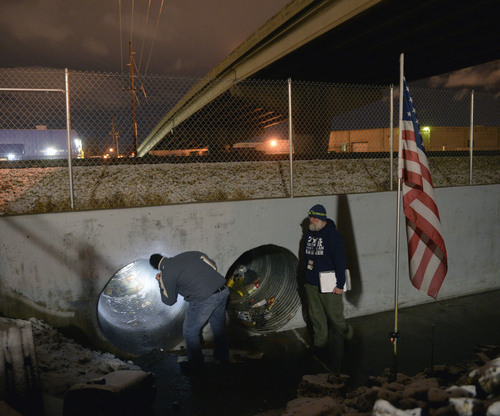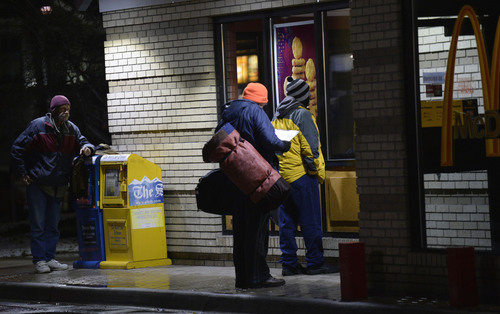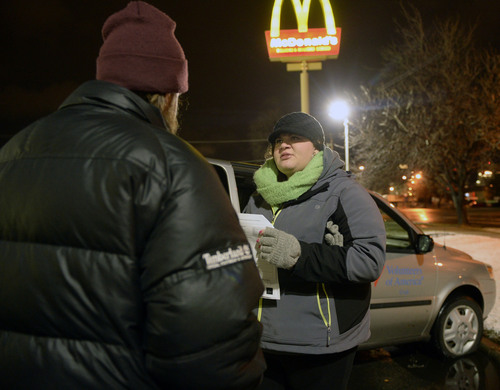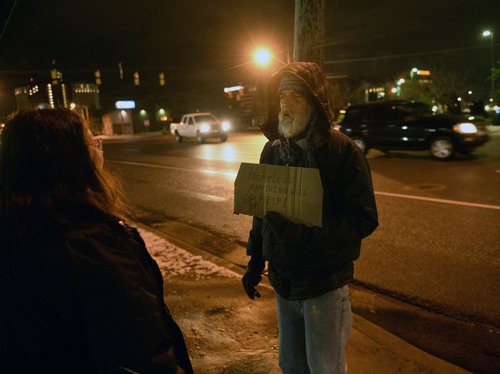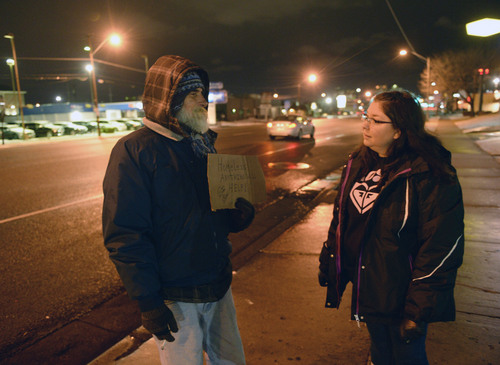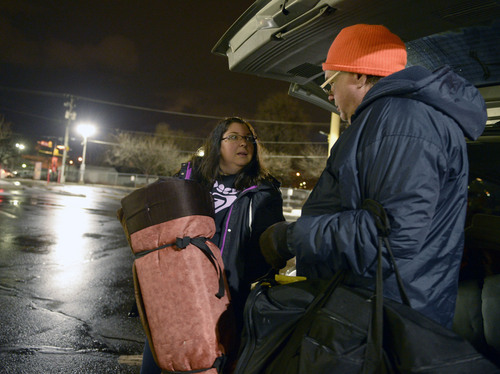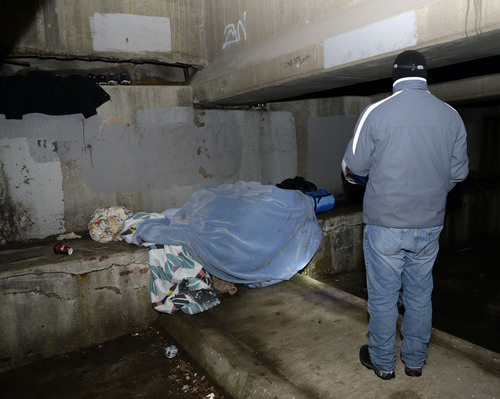This is an archived article that was published on sltrib.com in 2014, and information in the article may be outdated. It is provided only for personal research purposes and may not be reprinted.
It's a little after 6 a.m. and Darrell Crews is huddled beneath several blankets under a viaduct near 1300 South and 600 West in Salt Lake City. For now, it's his home.
He is one of at least 200 people living outdoors in Salt Lake County that are being counted this week by the Volunteers of America (VOA), Utah Community Services Office, the Road Home and other service providers for the annual count of homeless people.
Crews is 65 and and a Vietnam veteran. He says he's been living on the streets of Salt Lake City for about 20 years, moving from place to place, spot to spot. He panhandles for food money. It's a hard life, he says in a muffled voice from his bed, a cold slab of concrete beneath the blankets.
Outreach workers in two dozen teams of three people each fan out across Salt Lake Valley looking under bridges, in storm water culverts and behind warehouses for people like Crews. The survey takes place from Jan. 30 to Feb. 1 and is conducted between 4 a.m. and 7 a.m. to catch the homeless before they begin moving about for the day, said VOA spokeswoman DeAnn Zebelean.
The count takes place each January when the cold weather drives most homeless people into shelters, she said. Last year, about 2,800 people were staying indoors during the homeless census.
The Community Services Office will tally the point-in-time count of those living inside and outside. The state agency then will submit the data to the U.S. Department of Housing and Urban Development that uses it to calculate funding grants for homeless services.
Beyond name and age, the survey asks people such questions as where they spent the night, how many times they've been to the hospital emergency room, whether they've had any interaction with police, and whether they've experienced any violence.
The teams also inform those surveyed of services, including detox, medical care and housing programs, said VOA's Zach Bale.
But there are challenges. Before the homeless can receive any services they must have identification. But a significant proportion of them don't for various reasons, explained coordinator Ed Snoddy. Outreach workers will help them get a copy of their birth certificate, Social Security card and picture I.D.
Randy Morris, a 49-year-old Alabama native gave his information to the VOA survey team at 5:30 a.m. in the McDonalds parking lot downtown. He says he's been homeless since Jan. 7 when he was let out of the Utah State Prison after a stretch for what he called "an improper relationship on the Internet."
Outreach workers gave him a sleeping bag, socks and a grocery store gift card.
Tijuana, Mexico native Cesar Aguire, 51, is homeless but has had some part-time construction work. He hopes as the whether warms that he will get full-time work and a place to live. He has been in Salt Lake City about four months and was unaware of many programs offered to the homeless until survey workers talked to him. "They gave me the information and I will use it," he said.
For people like Morris and Aguire, homelessness is usually not a long-term condition. But for those living on the streets for years, like Crews, it takes a lot of effort to get them a home with a roof, Snoddy said.
"People who have been out for 15 to 20 years may not want to come inside," he said. "I've got a guy, 53 years old, and we've tried five different apartments, but he can't handle it. He gets scared."
But from beneath his blankets under the viaduct, Crews said he's ready to live someplace warm. He won't go near shelters or soup kitchens because, "There are too many people and too much trouble."
VOA outreach workers have signed him up for Social Security. He will soon begin receiving benefits and won't have to panhandle for food money anymore.
Larry Mullin, an outreach coordinator, said Crews' age and veteran status would put him at the top of the list for assisted housing.
Mullin helped spread a new sleeping bag over Crews and told him they'd work on getting him a home.
Donate to Volunteers of America


